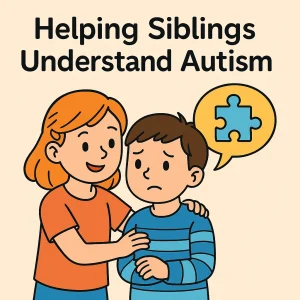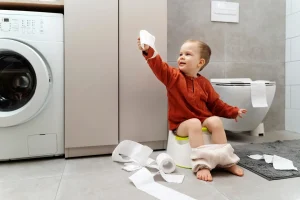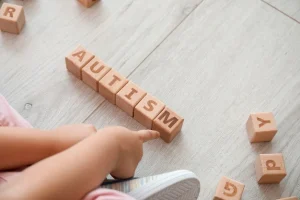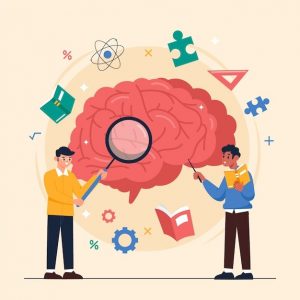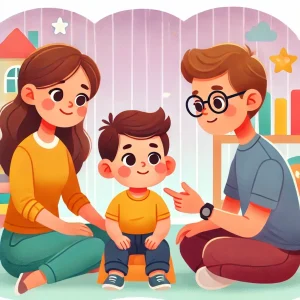Top 9 Fun Activities for Kids with Autism to Learn Life Skills
By Wellness Hub
Last Updated: April 4, 2025
Hi there! I’m Jamie, and I want to share how I’ve been learning to do lots of things all by myself through fun activities for kids with Autism Spectrum Disorder Learning new things can sometimes feel like a big adventure—sometimes it’s tricky, but it always ends up being super fun! Every day, I get to try new activities specifically designed to help kids like me grow up and become more independent. That means I can do more things on my own without always needing help.
When I first started learning these skills through fun activities for kids with autism, I wasn’t sure I could do it. But guess what? Each time I tried something new, like making my own snack or figuring out how to get ready for school all by myself, I felt really proud. It’s kind of like being a superhero, where every new skill is a superpower I gain. And you know what? It feels amazing to be able to do things by myself—it makes me feel confident and super happy!
What are Life Skills?
Do you know what life skills are? They’re all the cool things I learn to do by myself so that I don’t always need help from mom, dad, or my teachers. Life skills are super important because they help me take care of myself and get things done all on my own. It’s like having a toolkit that helps me handle lots of different situations, whether I’m at home, school, or playing at the park.
For example, one life skill I’m really proud of is tying my own shoes. It might sound small, but it was a big deal for me! At first, it was really hard, and I needed a lot of tries to get it right. But now, I can do it super fast, and it makes getting ready to go out so much easier.
Another important life skill I’ve been working on is making my own breakfast. I can pour cereal and milk into a bowl all by myself. Back when I used to wait for someone to help me, it felt different—but now, I feel proud that I can do it alone. It really makes me feel like a big kid!
I’m also learning how to stay safe, like knowing what to do if there’s an emergency or how to cross the street carefully. These are the kinds of things that help me take good care of myself, and everyone is happy to see me learning them.
My Top 9 Fun Activities for Learning Life Skills
Learning new things can be a super adventure, especially when you turn them into fun activities. Here are my top 10 favorite activities that help me learn important skills, each one like a mini-adventure!
1. Making My Own Snacks
Making snacks is one of my favorite things to do! I started by learning how to make sandwiches. It’s like being a chef in my own little kitchen. I pick my favorite bread—sometimes it’s white, sometimes it’s wheat—and then I choose what goes inside. Maybe it’s cheese or turkey, or even some lettuce. I learned how to spread butter or mayo without making a mess, and now I can make a snack whenever I’m hungry. It’s fun because I get to decide what I eat, and it tastes so good knowing I made it all by myself!
2. Playing Store at Home
One of the coolest games we play at home is “Playing Store.” I set up my own shop using things from around the house, and I get to be the shopkeeper. I use play money to learn about buying and selling. My family comes to shop, and I help them find what they need. It’s a fun way to learn how to handle money and interact with customers, all from my room!
3. Emergency Drills as Superhero Training
Pretending to be a superhero makes learning about safety exciting! We do emergency drills at home where I practice what to do if there’s a fire or if someone needs help. I learned to call 911 and what to say, which makes me feel really important and ready to save the day!
4. Clean-Up Time Race
Cleaning up doesn’t have to be boring. We make it a race to see how fast I can tidy up my toys and books. I try to beat my last time, and it’s fun to see how quickly I can do it. Plus, my room looks great afterward, which makes everyone happy!
Explore our easy-to-use therapy resources designed to build life skills at home – Home Therapy Products Now
5. Dressing Up Challenge
I love choosing what to wear! Each morning, I have a dressing-up challenge where I pick my outfit for the day. It helps me learn about matching colors and dressing for the weather. It’s like I’m the boss of my own fashion show!
6. Talking to Friends
Making friends is more fun when you know how to chat! I practice using kind words and sharing interesting stories. Learning how to take turns talking and listening makes me a good friend, and I love playing and talking with my buddies.
7. Helping Out Family
There are lots of things I can do to help out at home. Whether it’s setting the table or helping with laundry, I learn about responsibility and teamwork. It feels good to be helpful and see how my actions make home life better for everyone.
8. Learning to Wait and Take Turns
Playing games where I have to wait for my turn teaches me patience and fairness. Whether it’s board games or group activities, I know everyone gets a turn, and that makes the game fun for all my friends.
9. Doing Small Jobs to Earn My Allowance
To earn my allowance, I do small jobs around the house. Maybe I’ll water the plants or help clean up after dinner. It teaches me the value of work, and I save my allowance for something special I really want. It’s exciting to see my savings grow!
Conclusion
I’ve had so much fun telling you about how I learned to do things by myself! Each activity, like making snacks or earning my allowance, makes me feel really grown-up and proud. Every new skill boosts my confidence and excitement. Wellness Hub has awesome tools and friendly people who help kids like me learn these cool skills. If you want to learn too, check out our fun learning activities. Let’s keep learning and having fun together—one exciting step at a time! Thanks for reading about my adventure in becoming more independent!
Frequently Asked Questions:
1. What are life skills for children with autism?
Life skills are essential activities and tasks that your child learns to manage independently, such as dressing, cooking, and interacting socially. These skills are crucial for personal development and help children with autism navigate everyday situations more effectively.
2. Why is it important for children with autism to learn independent life skills?
Independent life skills empower children with autism by increasing their self-sufficiency and ability to handle various aspects of daily life. Developing these skills reduces dependency on others and enhances self-esteem, which is vital for their overall well-being and integration into different environments.
3. How can I help my child with autism develop life skills?
Create a supportive and structured environment at home where learning is part of daily routines. Use consistent, step-by-step instructions and visual aids to teach new tasks. Engage in regular practice and maintain patience, offering positive reinforcement to encourage progress.
4. What are some simple activities to teach life skills to kids with autism?
Start with basic tasks that your child can relate to and enjoy, such as preparing a simple snack, setting up a grocery store game to teach money concepts, or practicing hygiene routines like brushing teeth. These activities build foundational skills in a fun and engaging way.
5. Can learning life skills help my child with autism feel more confident?
Absolutely. As children with autism master new skills, they often experience a boost in self-confidence. This newfound confidence can lead to greater enthusiasm for learning and trying new things, which contributes positively to their social interactions and independence.
6. What are the best ways to teach money management to a child with autism?
Introduce money management through interactive and visual games like a pretend store or using apps that simulate shopping experiences. Start with simple concepts like identifying coins and bills and gradually introduce budgeting and making change.
7. How do emergency drills benefit children with autism?
Emergency drills prepare children with autism for unexpected situations, such as fires or medical emergencies. These drills help reduce anxiety by providing a clear set of actions to take, thereby increasing the child’s feeling of safety and preparedness.
8. What kind of support does Wellness Hub provide for teaching life skills?
Wellness Hub offers a variety of resources specifically designed to support life skills education for children with autism. These include interactive tools, visual aids, and practical activities that parents can use to teach and reinforce life skills in an engaging and effective manner.
9. How do I make learning life skills fun for my child with autism?
Incorporate games, rewards, and elements of play into learning to keep it fun and engaging. For example, use a timer to make cleaning a speedy challenge or role-play different social scenarios in a comfortable home setting. Making learning enjoyable helps maintain your child’s interest and motivation.
10. What should I do if my child struggles with a new life skill?
If a new life skill presents challenges, take a step back and break the skill down into smaller, more manageable components. Offer lots of encouragement and celebrate even minor accomplishments to build confidence. Adjust your teaching approach based on what works best for your child, considering their unique preferences and learning style.
About the Author:
Rajini Darugupally
M.Sc., Speech-Language Pathologist (9+ years of experience)
Rajini is a passionate and dedicated Speech-Language Pathologist with over 9+ years of experience, specializing in both developmental speech and language disorders in children and rehabilitation in adults. Driven by a desire to empower each individual to find their voice, Rajini brings a wealth of experience and a warm, genuine approach to therapy. Currently, at Wellness Hub, she thrives in a team environment that values innovation, compassion, and achieving results for their clients.
Book your Free Consultation Today
Parent/Caregiver Info:
Client’s Details:
* Error Message
